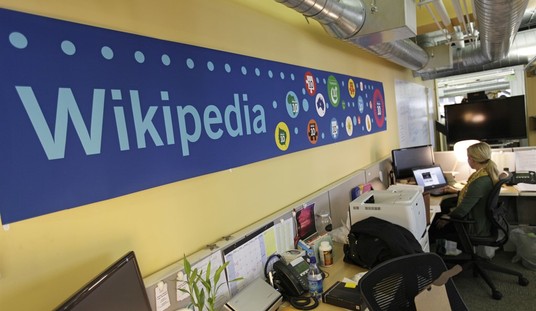Of all Fridays to conduct a news dump, last Friday may have been the best. The conservative grassroots and the progressive organizations busied themselves in Las Vegas, and the political media turned its attention to Sin City. The Wall Street Journal minded the store, however, and noticed the late release of the White House’s semi-annual budget review. It’s easy to see why the Obama administration didn’t want to draw any attention to it (via Instapundit):
Democrats have been running Congress for nearly four years, and President Obama has been at the White House for 18 months, so it’s not too soon to ask: How’s that working out? One devastating scorecard came out Friday from the White House, in the form of its own semi-annual budget review.
The message: Tax revenues are smaller, spending is greater, and the deficits are thus larger than the White House has been saying. No wonder it dumped the news on the eve of a sweltering mid-July weekend.
In fact, deficits grew even as the White House claimed that the economy grew, even at the anemic pace we’ve seen thus far. Their projection for future growth is ambitious — greater than 4% starting in 2012 after slowly accelerating this year and next, which the White House claims will reduce the deficit naturally through greater revenues. The WSJ points out the fallacy of that fantasy:
The White House predicts revenues will rise sharply after that, as it also assumes the economy will grow by more than 4% in each of 2012, 2013 and 2014. The last time the economy grew that rapidly for that long, however, was from 1997-2000 and from 1983-1985. In both of those cases, taxes were falling. The Obama White House plans a huge tax increase next year, followed by the ObamaCare tax hikes that hit in 2013, and that’s before whatever else the President’s deficit commission recommends. …
The Reagan Administration also pursued fiscal stimulus, but its policy choice was permanent across-the-board cuts in marginal tax rates. Revenue didn’t fall nearly as much as Keynesian economists predicted it would, and the economy roared back. Growth and spending restraint then reduced the deficit over time.
Democrats by contrast have pursued stimulus by spending and temporary tax rebates for selective constituencies. They did so first in concert with President George W. Bush, who was intellectually and politically tapped out, in February 2008. Then they did so again, on hyperdrive, with the February 2009 stimulus. They are now doing it again on a smaller scale with another burst of jobless benefits, adding some $30 billion to the deficit.
To put it another way, Democrats have been undertaking a vast fiscal policy experiment, blowing out the federal balance sheet in an effort to show that a country can spend and tax its way to prosperity. Look no further than the numbers in the White House’s own budget review for the unhappy lab results.
This was the subject of my speech to Right Online. We have spent the past two years pursuing the policies that failed in the 1970s, such as large government interventions in labor and goods markets and the imposition of massive regulatory regimes intended to manage the economy from the top down. We’re ignoring the policies that succeeded in the 1980s that eventually provided the antidote to the Keynesianism of the Nixon-Ford-Carter years, and that touched off a massive expansion of the American economy.
The semi-annual review shows that the Obama administration still hasn’t learned its lesson. It’s akin to having a money-losing product but trying to convince the bank that you can make up the losses in volume sales. At its heart, Obamanomics holds a central flaw: the idea that government acts as a multiplier to capital rather than a diluter and destructor of capital. The more capital it confiscates for its central-planning economics, the less we have for real growth. Some government oversight is necessary to prevent fraud and theft, but even that doesn’t act as a multiplier for the capital it consumes; it’s merely the rational cost of doing business.
Barack Obama still hasn’t learned that, but the voters have begun to figure it out.








Join the conversation as a VIP Member